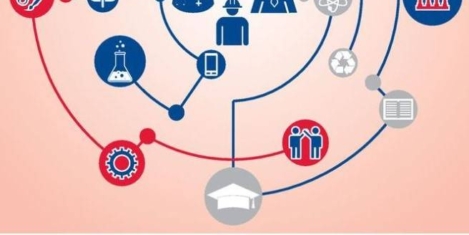December 14, 2017
One in three UK workers unhappy at work and a quarter plan career change
 The majority (72 percent) of employees in the UK go to work just to afford to live rather than for job satisfaction and one in four are considering a career change in 2018, claims a new survey. According to research conducted by Paymentsense, over half of those questioned say money is their biggest motivation, 67 percent say their degree went to waste and they work in an unrelated role, and 25 percent are considering a whole career change in 2018. According to the 2,000 UK participants in the survey, a career peak occurs at 42 years old, which is when you start to lose passion for your work. At this age, opportunities to progress seem to be rare which is why when asking those in their 40’s ‘why do you go to work every day’? 76 percent say to be able to afford to live. 51 percent say they need to just pay the mortgage and 57 percent have responsibilities to support the family.
The majority (72 percent) of employees in the UK go to work just to afford to live rather than for job satisfaction and one in four are considering a career change in 2018, claims a new survey. According to research conducted by Paymentsense, over half of those questioned say money is their biggest motivation, 67 percent say their degree went to waste and they work in an unrelated role, and 25 percent are considering a whole career change in 2018. According to the 2,000 UK participants in the survey, a career peak occurs at 42 years old, which is when you start to lose passion for your work. At this age, opportunities to progress seem to be rare which is why when asking those in their 40’s ‘why do you go to work every day’? 76 percent say to be able to afford to live. 51 percent say they need to just pay the mortgage and 57 percent have responsibilities to support the family.



















 Banking and finance companies within the FTSE 100 have increased gender and ethnic diversity at board level, but there remains a question over whether minorities can break through the glass ceiling, as many of the top roles in banking and finance companies (Chair, CEO & CFO) remain a closed shop for ethnic minority and female leaders. This is according to a new study from Green Park which claims the leadership pipeline, supplying the highest tier of management in FTSE 100 banking and finance companies, now features the highest level of ethnic minority talent in four years, including 15 percent of professionals with a non-white background compared with 5 percent of leadership pipelines for FTSE 100 companies overall and 6.5 percent in 2014. The banking and finance sector has also met the target set by Lord Davies that 25 percent of board members should be female. However, this has been updated by the Hampton-Alexander Review to a target of 33 percent by 2020, which suggests that banking and finance companies will still need to do more to increase the proportion of female leaders in their leadership pipelines.
Banking and finance companies within the FTSE 100 have increased gender and ethnic diversity at board level, but there remains a question over whether minorities can break through the glass ceiling, as many of the top roles in banking and finance companies (Chair, CEO & CFO) remain a closed shop for ethnic minority and female leaders. This is according to a new study from Green Park which claims the leadership pipeline, supplying the highest tier of management in FTSE 100 banking and finance companies, now features the highest level of ethnic minority talent in four years, including 15 percent of professionals with a non-white background compared with 5 percent of leadership pipelines for FTSE 100 companies overall and 6.5 percent in 2014. The banking and finance sector has also met the target set by Lord Davies that 25 percent of board members should be female. However, this has been updated by the Hampton-Alexander Review to a target of 33 percent by 2020, which suggests that banking and finance companies will still need to do more to increase the proportion of female leaders in their leadership pipelines.




 An overwhelming majority of employees are deliberately seeking out information they are not permitted to access, exposing a major cybersecurity problem among today’s workforce, claims new research published by One Identity. The survey, conducted by Dimensional Research, polled more than 900 IT security professionals on trends and challenges related to managing employee access to corporate data. Among key findings, a remarkable 92 percent of respondents report that employees at their organisations try to access information that is not necessary for their day-to-day work – with nearly one in four (23 percent) admitting this behaviour happens frequently. Most alarmingly, the report indicates that IT security professionals themselves are among the worst offenders of corporate data snooping. One in three respondents admit to having accessed sensitive information that is not necessary for their day-to-day work.
An overwhelming majority of employees are deliberately seeking out information they are not permitted to access, exposing a major cybersecurity problem among today’s workforce, claims new research published by One Identity. The survey, conducted by Dimensional Research, polled more than 900 IT security professionals on trends and challenges related to managing employee access to corporate data. Among key findings, a remarkable 92 percent of respondents report that employees at their organisations try to access information that is not necessary for their day-to-day work – with nearly one in four (23 percent) admitting this behaviour happens frequently. Most alarmingly, the report indicates that IT security professionals themselves are among the worst offenders of corporate data snooping. One in three respondents admit to having accessed sensitive information that is not necessary for their day-to-day work.








December 13, 2017
The ups and downs of wearables for workplace health and wellbeing
by Lee Sadd • AI, Comment, Technology
More →